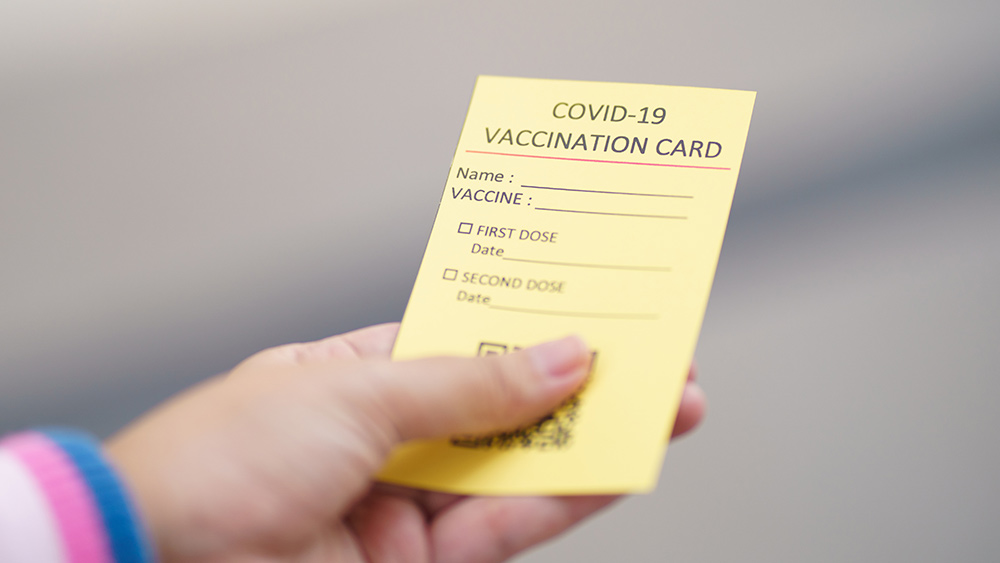 Parler
Parler Gab
Gab
Hormonal contraceptives are linked to breast cancer and cervical cancer
The latest research on hormonal contraceptives is grim. A study published in the New England Journal of Medicine looked at nearly two million Danish women who took hormonal contraceptives. The researchers found an increased risk of breast cancer among women taking the birth control pills and the risk increased the longer the pill was used. It’s not just breast cancer. The National Cancer Institute found that women who take oral contraceptives for at least five years are more likely to be diagnosed with cervical cancer. In their research, women who took birth control less than five years saw a 10 percent increase in cervical cancer rates. Women who took birth control from five to nine years saw a 60 percent increase in cervical cancer risk. The risk doubled for women who took the pills for more than ten years. When women stop taking the pills, their cervical cancer risk declines over time.PPIs harm healthy gut bacteria, creating conditions for gastric cancer to develop
Proton Pump Inhibitors (PPIs) are a popular type of medicine that reduces the amount of stomach acid made by glands in the lining of the stomach. While this mode of action typically provides relief from heartburn and indigestion, it does not holistically address the conditions that cause the problem in the first place. A 2023 systematic review and meta-analysis found an association between PPIs and gastric cancer risk. The drug not only reduces the stomach acid but it also depletes the bacteria in the gut, reducing the commensal bacteria species that are necessary for proper immune function and blood protection. This resulting gut dysbiosis allows pathogenic organisms to flourish and permits toxins to infiltrate the blood, exposing the rest of the body to further stress. The authors of the study said that PPIs should only be used briefly and at the lowest possible dose.Statins linked to colorectal, bladder, and lung cancers
Cholesterol-lowering medications may reduce one’s risk of having a heart attack or stroke, but they may increase one’s risk of getting colorectal, bladder, and lung cancer. In a 2011 study, patients who took statins for over four years were more likely to be diagnosed with these three types of cancer. Statin drugs inhibit an enzyme that is involved in cholesterol production, but this also negatively effects cell growth and regulation. This can harm cell signaling pathways and damage immune responses, making the cells more vulnerable to certain types of cancer. Medicines that were used to treat high blood pressure and heart failure are often laced with a notorious carcinogen - N-nitrosodimethylamine (NDMA). In 2018, valsartan products, losartan, and irbesartan were all recalled by the FDA for their cancer risk. In 2020, the heartburn medication Zantac was recalled for high levels of NDMA. Many of America’s drugs come from Chinese and Indian plants that are known for manufacturing medicines with contaminants and carcinogens. In July, the chair of the House Energy and Commerce Committee, Rep. Cathy McMorris Rodgers worked with the Health and Oversight Subcommittee to address the issue of foreign drugs and poorly-conducted inspections. McMorris Rodgers wrote to FDA Commissioner Dr. Robert Califf, warning that these foreign manufacturers use non-sterile processes and their staff routinely destroy or falsify data to push out contaminated, generic drugs onto the world population. The U.S. desperately needs real innovation in medicine, as pharma drug cartels drive up cancer rates in the population. Sources include: TheEpochTimes.com Science.NaturalNews.com Cancer.gov FrontiersIn.org BMCCancer.Biomedcentral.com NaturalNews.comCDC stops printing, begins phasing out COVID-19 vaccination cards
By Zoey Sky // Share
Turmeric’s ‘smart kill’ properties put chemo & radiation to shame
By News Editors // Share
COVID vaccinated suffering psychosis, panic attacks and hallucinations
By Ethan Huff // Share
Bill Gates announces $40M investment to develop mRNA VACCINE in Africa
By Ramon Tomey // Share
Governments continue to obscure COVID-19 vaccine data amid rising concerns over excess deaths
By patricklewis // Share
Tech giant Microsoft backs EXTINCTION with its support of carbon capture programs
By ramontomeydw // Share
Germany to resume arms exports to Israel despite repeated ceasefire violations
By isabelle // Share










